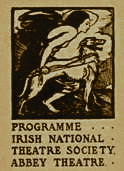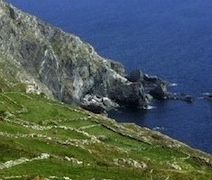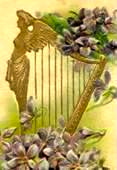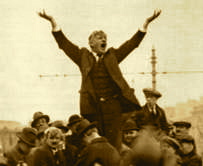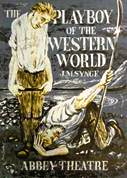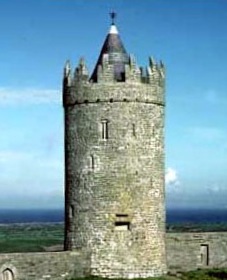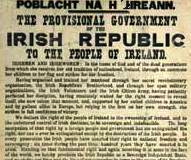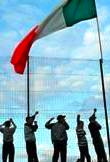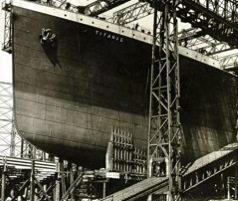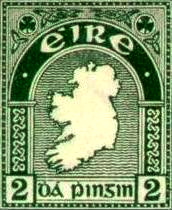There is no
present or future in Ireland, only the past happening over and over again.
—Eugene O'Neill
|
The study of Irish history does not excite political animosity but leads to
the very opposite result. To thoroughly appreciate the history of this
country it is necessary to sympathise with all parties...
—A.G. Richey, A Short History of the Irish People (1869)
|
Being Irish, he had an abiding sense of tragedy, which sustained him
through temporary periods of joy.
—W.B. Yeats |
THIS
is an interdisciplinary course that surveys the literature
and history of Ireland from the middle of the nineteenth century to the present day. Readings
for this course will combine historical scholarship with literature and primary source documents
from different periods in the development of Modern Ireland. The goals of the course are to
introduce students to the basics of historical research and analysis as well as to literary
criticism and theory. Students will be given an overall narrative of Modern Irish history
with attention to competing interpretations and key themes in scholarship. The study of
literature will introduce students to major developments in the Irish (and British) literary
tradition and how Irish society and politics both contributed to and were affected by these
developments. The interdisciplinary approach will train students to appreciate works of
literature for their importance as historical texts as well for their literary value.
It will also challenge students to consider the role of fiction, language, and literary
imagery in the creation of historical memory.
Our literary study will focus on the works of W.B. Yeats, James Joyce, J.M. Synge, Patrick Kavanagh,
Sean O'Casey, Seamus Heaney, Roddy Doyle and many others. Historical topics will include the rise of
the Home Rule Movement, emigration and identity among the Irish diaspora, Republicanism and Unionism,
the war for independence and the Irish Civil War, the relationship between church and state in the
Irish Republic, the "Troubles" in Northern Ireland, and the dynamics of present-day Irish culture
and society.
This course requires sophomore standing or higher and counts toward both the history
and English majors. Students from all disciplines are welcome.
|



